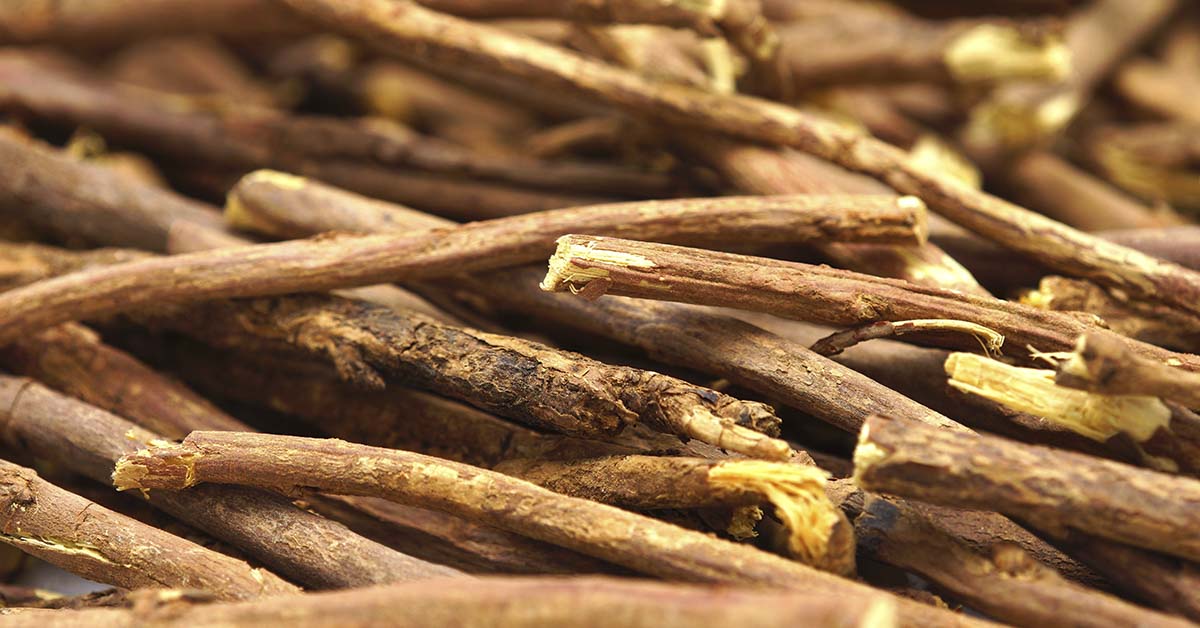Licorice root has been used for centuries in traditional medicine for its various health benefits. Not only is it a popular flavoring agent, but licorice root also offers numerous medicinal properties. From relieving digestive issues to supporting skin health, licorice root has gained attention for its potential therapeutic effects. Let’s explore ten possible health benefits of licorice root backed by scientific evidence.
What is Licorice Root, and Where Does it Come From?
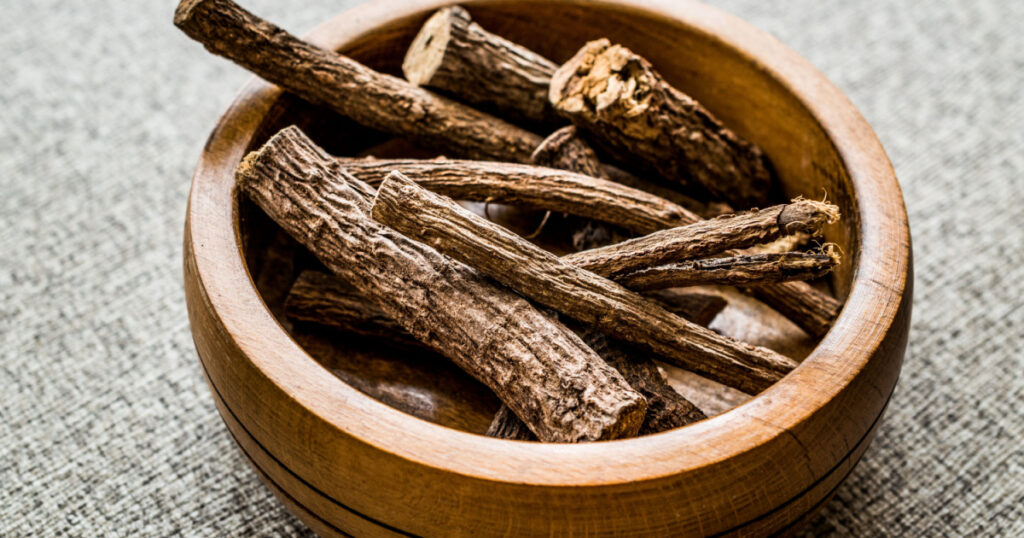
Licorice root is the root of the Glycyrrhiza glabra plant, which is native to parts of Asia and Europe. It has been used for thousands of years in traditional herbal medicine systems such as Ayurveda and Traditional Chinese Medicine. The root has a distinct sweet taste and is commonly used as a flavoring agent in candies, herbal teas, and other products. (1)
Read More: Candy overdose: Man dies from bag-a-day black licorice habit
Compounds and Reasons Why Licorice Root is Good for You
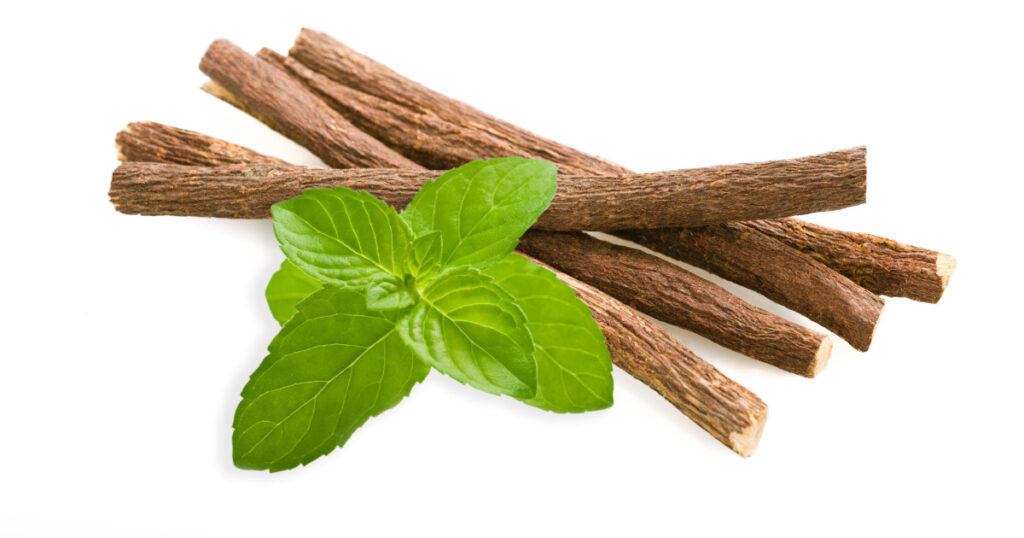
Licorice root contains over 300 compounds, some of which have demonstrated potent anti-inflammatory, antibacterial, and antiviral effects. One of the key compounds in licorice root is glycyrrhizin, which has been linked to many of its health benefits. Glycyrrhizin has shown anti-inflammatory properties, making it effective in treating various health issues. Licorice root also contains flavonoids, triterpenoids, and other plant compounds that contribute to its therapeutic effects.
10 Health Benefits of Licorice Root
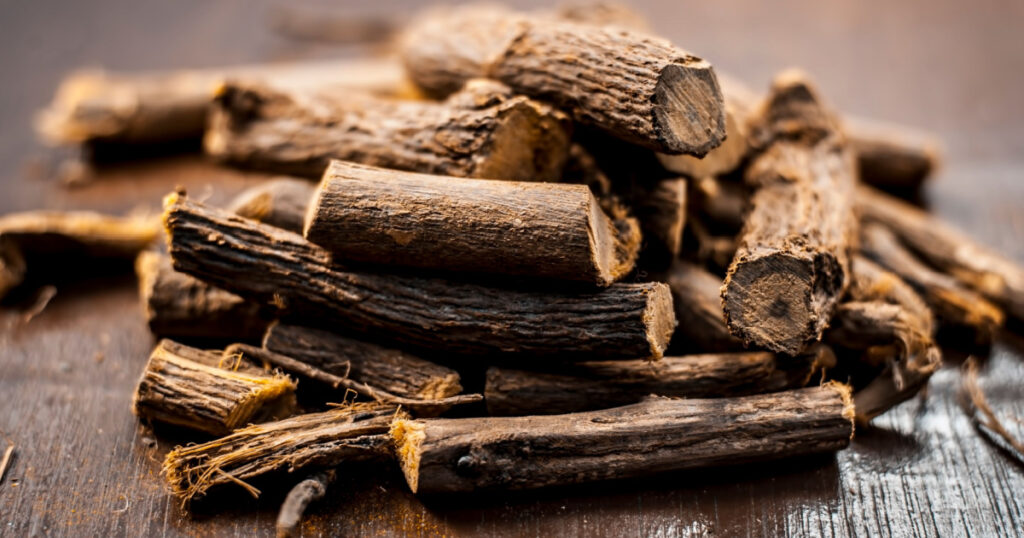
There are many reported health benefits of licorice root. Not all of them, however, have much, if any, scientific proof of efficacy. These 10 are the most tried-and-true benefits, with as much evidence that is currently available.
1. Aid skin conditions

Licorice root extract has been found to possess anti-inflammatory, antibacterial, and antiviral properties, making it effective in treating skin conditions like acne and eczema. Studies have shown that topical application of licorice root gel can significantly improve eczema symptoms. (2)
2. Reduce acid reflux and indigestion

Licorice root extract is commonly used to relieve symptoms of indigestion, such as acid reflux, upset stomach, and heartburn. Studies have shown that licorice root can improve symptoms of indigestion and may be beneficial for individuals with gastroesophageal reflux disease (GERD). (3)
3. Help treat peptic ulcers

Licorice root extract and its compound glycyrrhizin have shown promise in treating peptic ulcers. Studies have found that licorice extract can protect against ulcers caused by H. pylori bacteria and reduce their presence in the body. (4)
4. Anticancer properties

The antioxidant and anti-inflammatory properties of licorice root extract have been studied for their potential protective effects against certain types of cancer. Licorice extract has shown promising results in slowing or preventing cell growth in skin, breast, colorectal, and prostate cancers. (5)
5. Ease upper respiratory conditions

Licorice root extract and tea have been found to possess anti-inflammatory and antimicrobial effects, making them potential aids for upper respiratory conditions. Studies suggest that licorice root can help relieve asthma symptoms and protect against strep throat. (6)
6. Protect against cavities
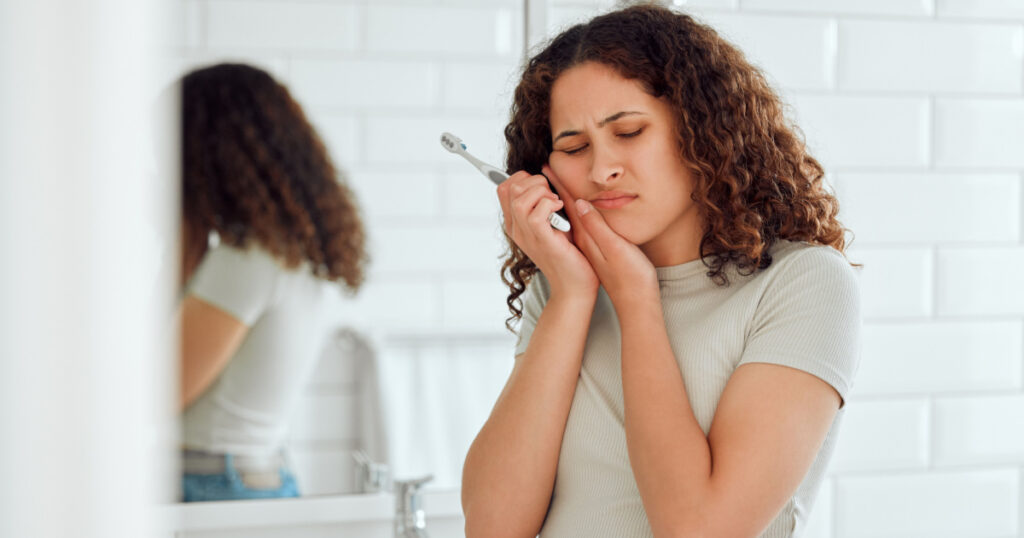
Licorice root has been found to be effective against bacteria that can cause cavities. Studies have shown that licorice root extract can reduce the number of Streptococcus mutans bacteria, which are the main cause of cavities. (7)
Read More: 7 Teas That Help Reduce Inflammation In The Body
7. Aid diabetes
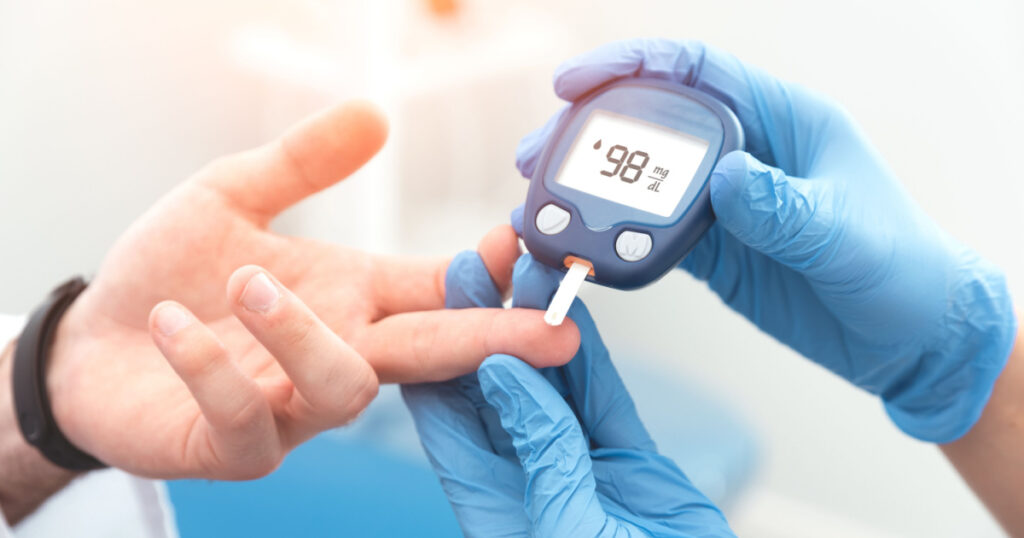
Animal studies have shown that daily intake of licorice root extract can lead to significant improvements in blood sugar levels and kidney health. However, further research is needed to determine its effectiveness in humans. (8)
8. Reduce menopause symptoms

Licorice root extract has been proposed as a treatment for hot flashes experienced during menopause, although its effectiveness is limited by the current evidence available. (9)
9. Boost weight loss

Some studies suggest that licorice root extract may support weight loss and lower body mass index (BMI). However, the effects on weight loss are still under debate and require further investigation. (10)
10. Help treat hepatitis C
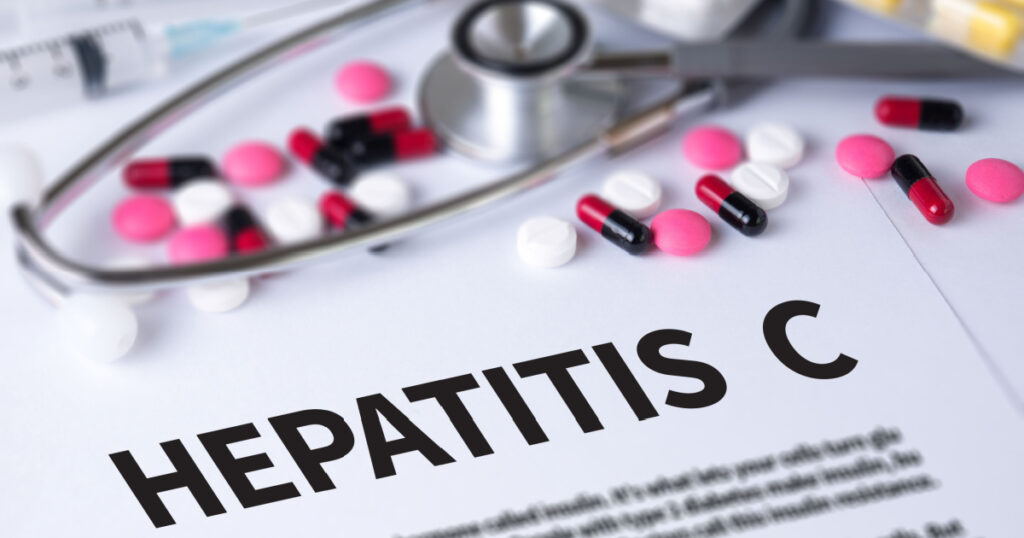
Test-tube studies have shown that adding glycyrrhizin, a compound found in licorice root, to standard hepatitis C treatment can reduce the spread of the virus. However, more research is needed to confirm these findings in humans. (11)
Read More: How to treat H. Pylori Bacteria Causing Heartburn And Bloating + Natural Remedies
Potential Precautions

While licorice root offers numerous health benefits, it’s important to exercise caution and be aware of potential side effects and interactions. Licorice root can cause imbalances in fluid and electrolyte levels, especially when consumed in large doses or over a prolonged period. People with high blood pressure, congestive heart failure, kidney disease, or low potassium levels should avoid licorice root products. Additionally, licorice root can interact with certain medications, including blood pressure medications, cholesterol-lowering drugs, and blood thinners. (12)
Difference Between Licorice Root and Licorice Candy

It’s crucial to differentiate between licorice root and licorice candy. Real licorice root and licorice candy are not the same. Licorice candy often contains little to no actual licorice root and is primarily made with flavorings and sweeteners. Therefore, the health benefits associated with licorice root do not apply to licorice candy.
How to Consume Licorice Root
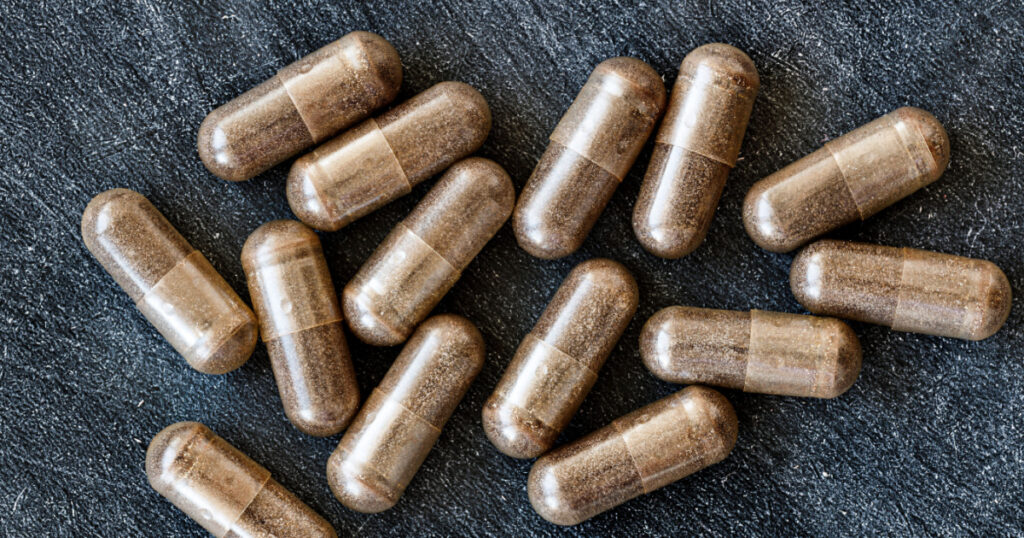
Licorice root can be consumed in various forms, including teas, capsules, powders, tinctures, and topical gels. The World Health Organization (WHO) and European Scientific Committee of Food (SCF) recommend limiting glycyrrhizin intake to no more than 100 mg per day. It’s important to consult a healthcare provider to determine a safe and effective dosage for your specific needs.
The Bottom Line
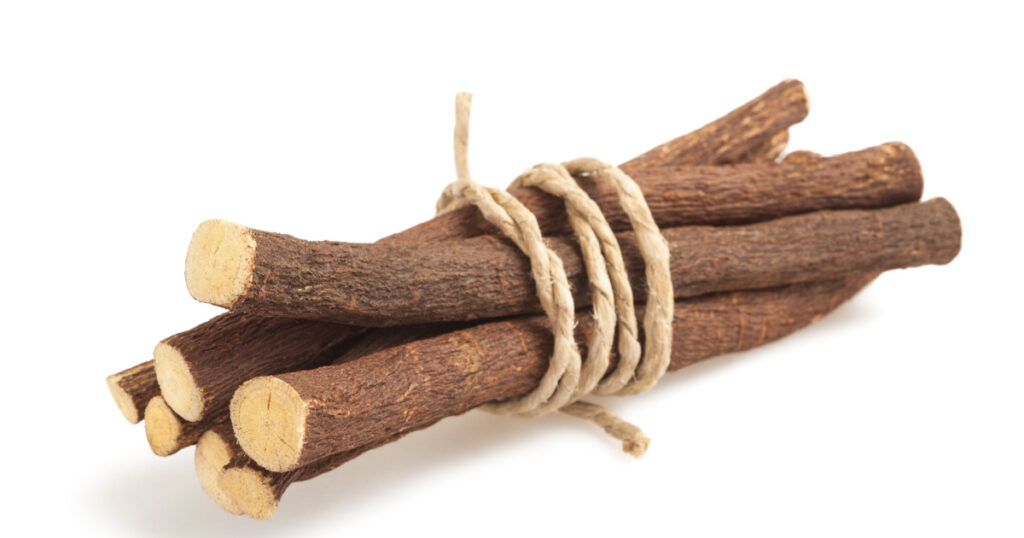
Licorice root offers a range of potential health benefits, backed by scientific research. From aiding skin conditions and reducing acid reflux to potentially treating peptic ulcers and offering anticancer properties, licorice root has gained recognition in the world of natural remedies. However, it’s essential to exercise caution, especially when consuming licorice root in large doses or for an extended period due to potential side effects and interactions with medications. Always consult with a healthcare professional before incorporating licorice root into your diet or supplementation routine.
Read More: 5 Deliciously Easy Smoothie Recipes For Healthy Skin
Sources
- “Licorice.” Examine. Kamal Patel, MPH, MBA. September 28, 2022.
- “The treatment of atopic dermatitis with licorice gel.” Pubmed.M Saeedi, K Morteza-Semnani and M-R Ghoreishi. September 2003.
- “Prevention of symptoms of gastric irritation (GERD) using two herbal formulas: An observational study.” Inform It. Russell Setright. June 1. 217.
- “To evaluate of the effect of adding licorice to the standard treatment regimen of Helicobacter pylori.” Pubmed. Ali Akbar Hajiaghamohammadi, Ali Zargar, Sonia Oveisi, Rasoul Samimi and Sedigheh Reisian. November- December 2016.
- “Chemopreventive Effects of Licorice and Its Components.” Pubmed. Ann M Bode and Zigang Dong. 2015.
- “Herbal medicine for adults with asthma: A systematic review.” Pubmed. Johannah L Shergis, Lei Wu , Anthony L Zhang, Xinfeng Guo, Chuanjian Lu and Charlie C Xue. August 2016.
- “Effect of Aqueous and Alcoholic Licorice (Glycyrrhiza Glabra) Root Extract Against Streptococcus Mutans and Lactobacillus Acidophilus in Comparison to Chlorhexidine: An In Vitro Study.” NCBI. Sunil Lingaraj Ajagannanavar, Hemant Battur, Supreetha Shamarao, Vivek Sivakumar, Pavan Uday Patil and P Shanavas. July-August 2014.
- “Effect of licorice extract on the complications of diabetes nephropathy in rats.” Pubmed. Hazem Hasan Kataya, AlaaEldin Ahmed Hamza, Gaber Ahmed Ramadan, Mohammad Ahmad Khasawneh. April 2011.
- “Licorice Root Components in Dietary Supplements are Selective Estrogen Receptor Modulators with a Spectrum of Estrogenic and Anti-Estrogenic Activities.” NCBI. Nittaya Boonmuen,Ping Gong, Zulfiqar Ali, Amar G. Chittiboyina, Ikhlas Khan, Daniel R. Doerge, William G. Helferich, Kathryn E. Carlson, Teresa Martin, Pawinee Piyachaturawat, John A. Katzenellenbogenand Benita S. Katzenellenbogen. November 2015.
- “Metabolic changes after licorice consumption: A systematic review with meta-analysis and trial sequential analysis of clinical trials.” Pubmed. Ângelo Luís, Fernanda Domingues and Luísa Pereira. January 2018.
- “Antiviral activity of glycyrrhizin against hepatitis C virus in vitro.” Pubmed. Yoshihiro Matsumoto 1, Tomokazu Matsuura, Haruyo Aoyagi, Mami Matsuda, Su Su Hmwe, Tomoko Date, Noriyuki Watanabe, Koichi Watashi, Ryosuke Suzuki, Shizuko Ichinose, Kenjiro Wake, Tetsuro Suzuki, Tatsuo Miyamura, Takaji Wakita and Hideki Aizaki. July 18, 2013.
Disclaimer: This information is not intended to be a substitute for professional medical advice, diagnosis or treatment and is for information only. Always seek the advice of your physician or another qualified health provider with any questions about your medical condition and/or current medication. Do not disregard professional medical advice or delay seeking advice or treatment because of something you have read here
